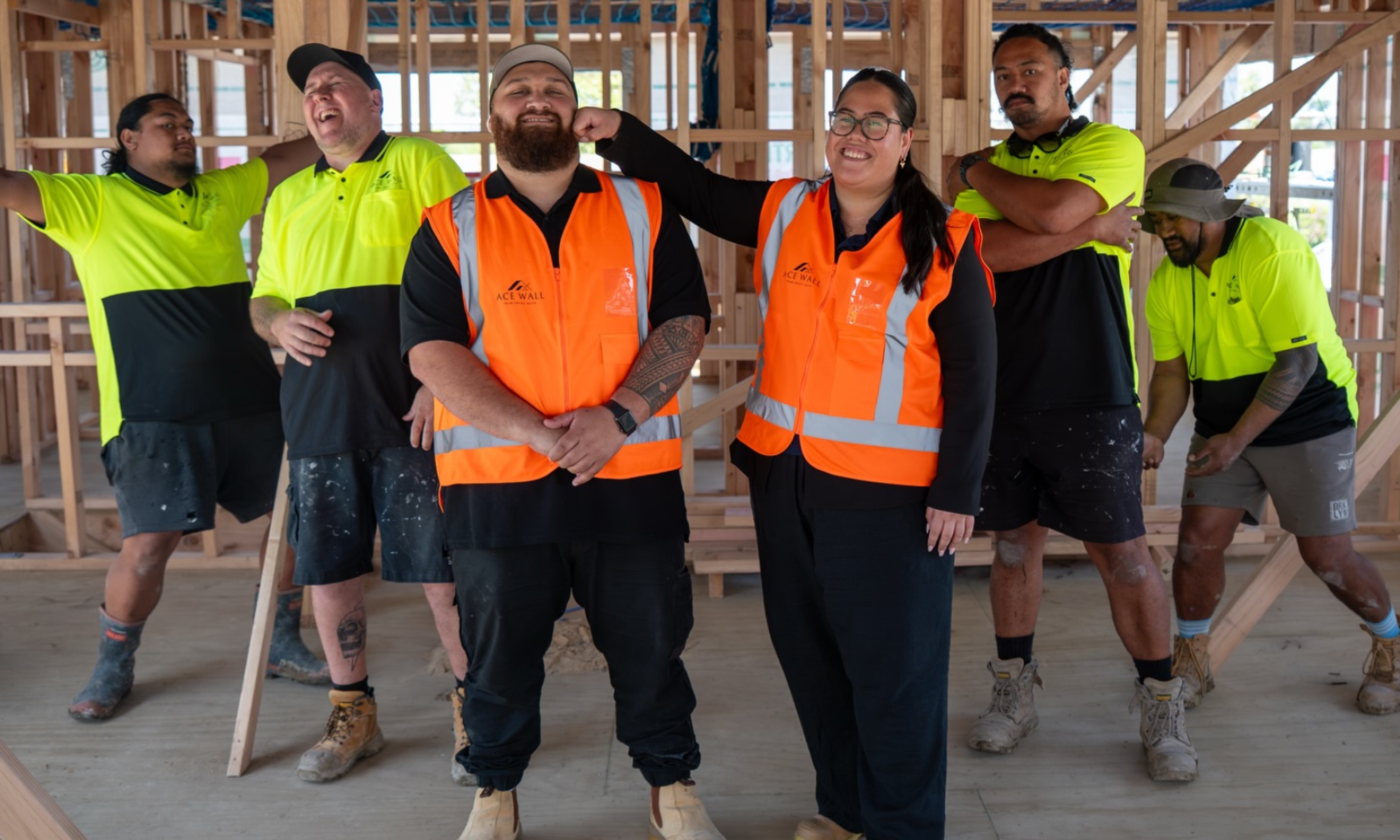

Arumaki Cowan, left, and Pomare Remana-Rogers stood stong in their reo for the Pacific General Assembly pōhiri onto Waitangi.
Photo/Joseph Safiti
Rangatahi front for the Pacific General Assembly at Waitangi
Two youths, of Pacific and Māori heritage, speak on the marae for the PGA’s inaugural visit.


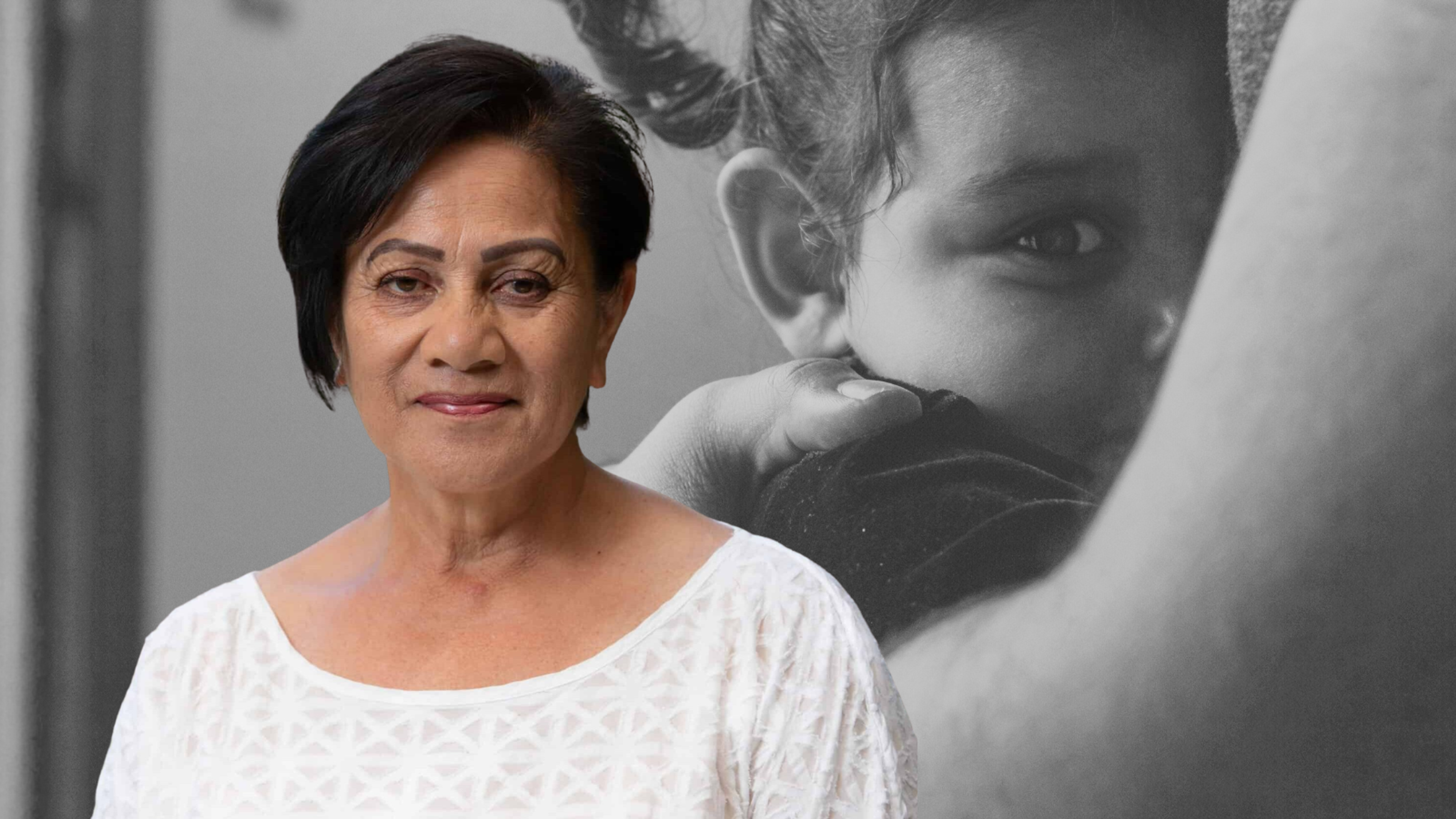
‘Don’t suffer in silence’: Pacific families see spike in violent crime
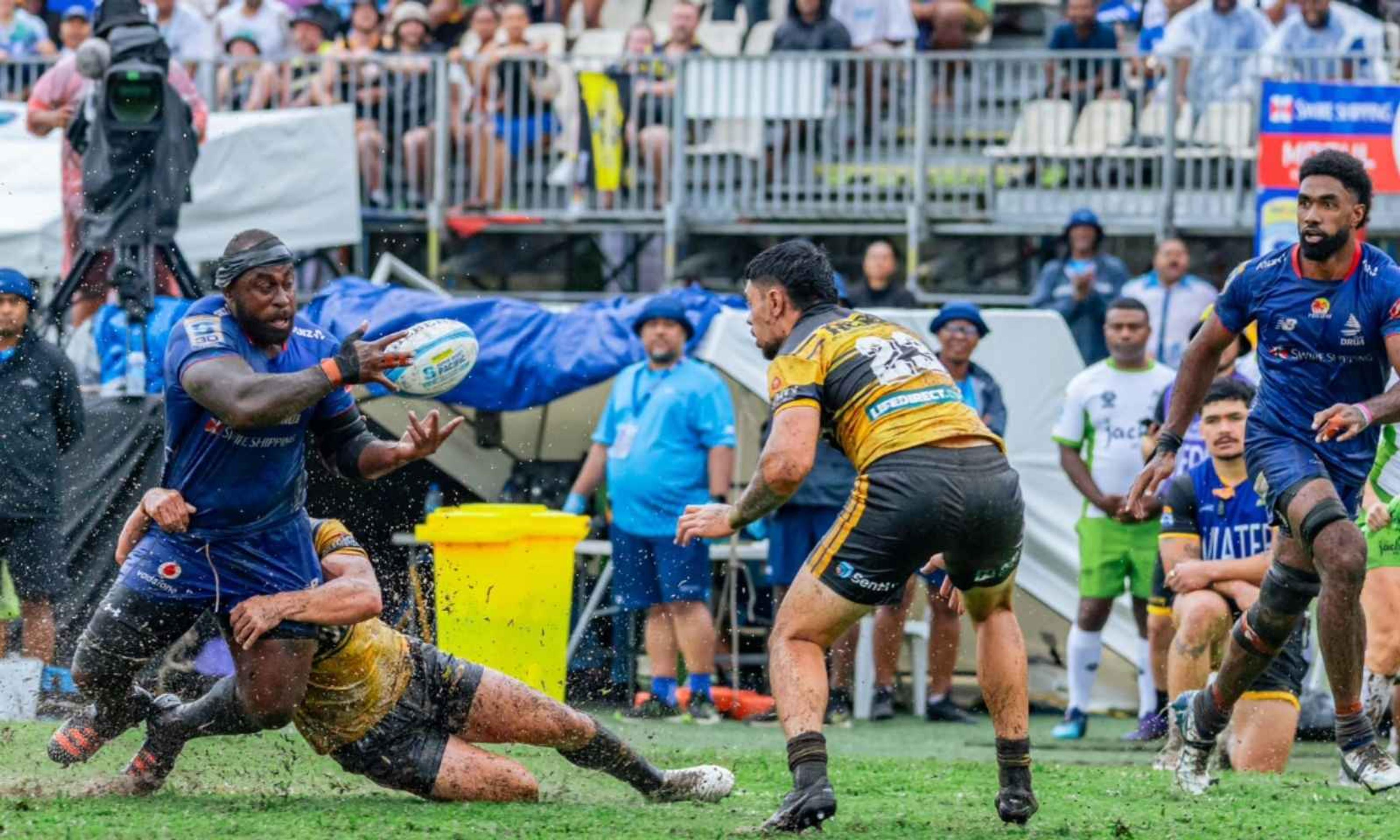

Winston Peters leads delegation to South America along with historic Rapa Nui visit


Pacific-led building company redesigning the intergenerational housing deficit in NZ

‘Don’t suffer in silence’: Pacific families see spike in violent crime


Winston Peters leads delegation to South America along with historic Rapa Nui visit
Young voices have echoed loud and strong on the marae ātea during the Pacific General Assembly’s (PGA) inaugural visit to Waitangi.
The group, which included representatives from Niue, the Cook Islands, Sāmoa, Tonga, Tokelau, the Solomon Islands, and Rotuma, was welcomed into Te Tii Marae.
It was a gathering of the four winds with attendees such as paediatrician Dame Dr Teuila Percival DNZM QSO, tech businesswomen and Fibre Fale co-founders Julia Arnott-Neenee and Nu’uali’i Eteroa Lafaele, rugby league legend Kevin Iro, and academics Tofilau Nina Kirifi Alai from the University of Otago and Lemoa Fesuluai from Auckland University of Technology.
While Lemoa opened for the visitors, two rangatahi of dual ethnicities, Māori and Pacific, spoke on behalf of the Pacific assembly.
This was a rare sight even in Māoridom as, in usual circumstances, the honour of doing the whaikōrero (speech) was the duty of an elder or those of chiefly status.
A brave 13-year-old Pomare Remana-Rogers (Ngāpuhi, Ngāti Raukawa, Matatufu, Satapuala - Upolu, Sāmoa) held the attention of his elders with his echoing message:
“Toitū te mana motuhake, toitū te reo Māori, toitū te Tiriti o Waitangi.” (The sovereignty of the people remains, the language remains, te Tiriti o Waitangi remains.)
Fifteen-year-old Arumaki Moetu Romeo Cowan (Ngāti Porou, Tūhoe, Rarotonga, Aitutaki) is a student at Te Kura Matua o Wainuiomata in Lower Hutt, but his family hails from the stunning East Coast town of Hicks Bay.
During his whaikōrero he acknowledged the journey his Cook Islands tūpuna made in seeking a new life in “the land of milk and honey”.
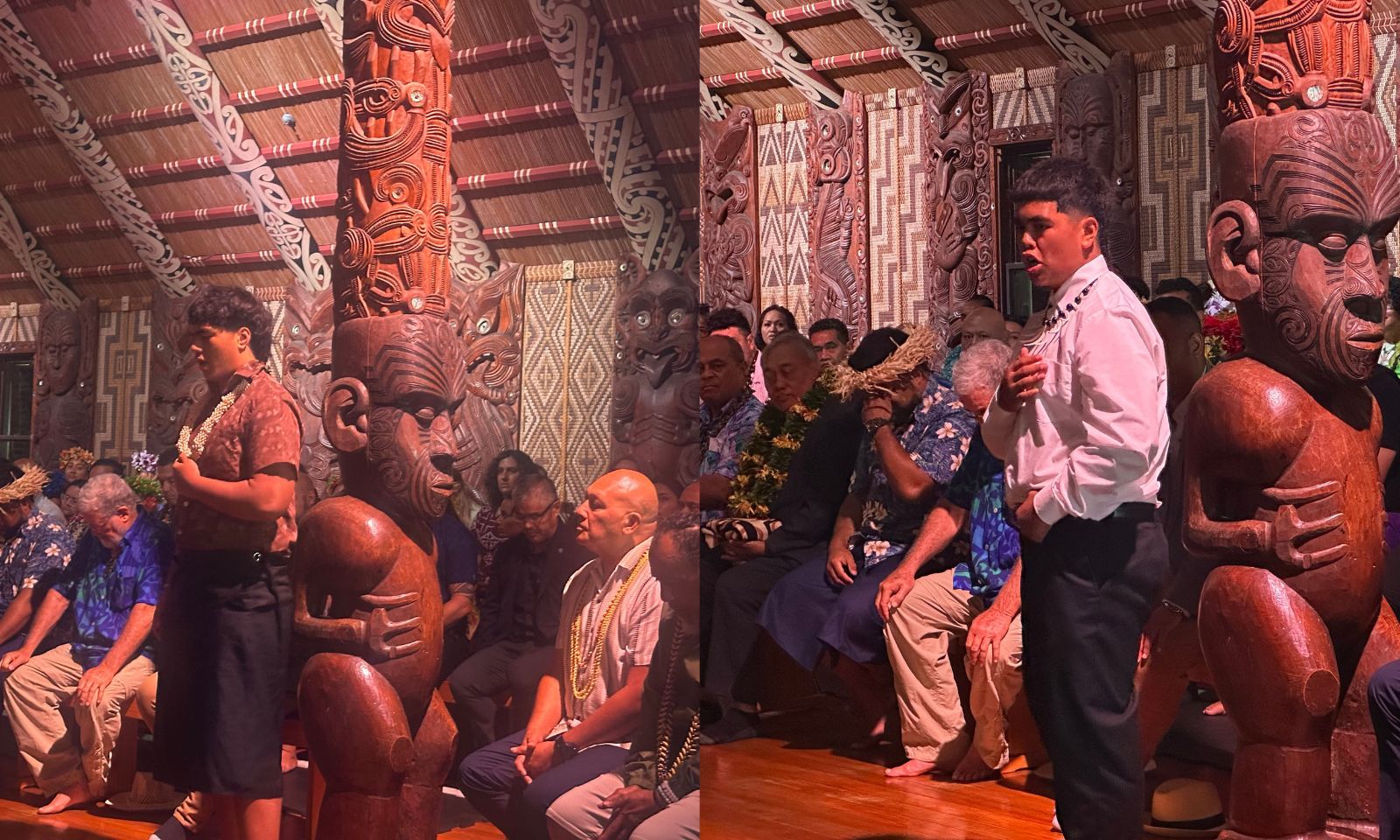
From schoolboys to paepae men. Photos/Joseph Safiti
Cowan also spoke on the need to continue strengthening Māori and Pacific ties and finding a way forward better together.
As a product of the Kōhanga Reo movement, a child of Māori education sown by Pacific principles and values, he believes there was one.
“It feels good to finally get it off my chest,” Cowan told PMN News when the proceedings concluded.
“None of my family are big speakers, I’m low-key one of the only ones that speak on the pae or speak Māori.”
Tomorrow’s leaders
Having made the head-to-tail trip with his mother, Cowan spent Tuesday evening with PGA chair Aupito William Sio to prepare for his big stand - a moment Aupito said he was already well prepared for.
Aupito spoke to PMN News before their whakatau (welcome) to Te Ahuahu marae (Rawhitiroa) in Ngāpuhi country about the importance of having youth representation.
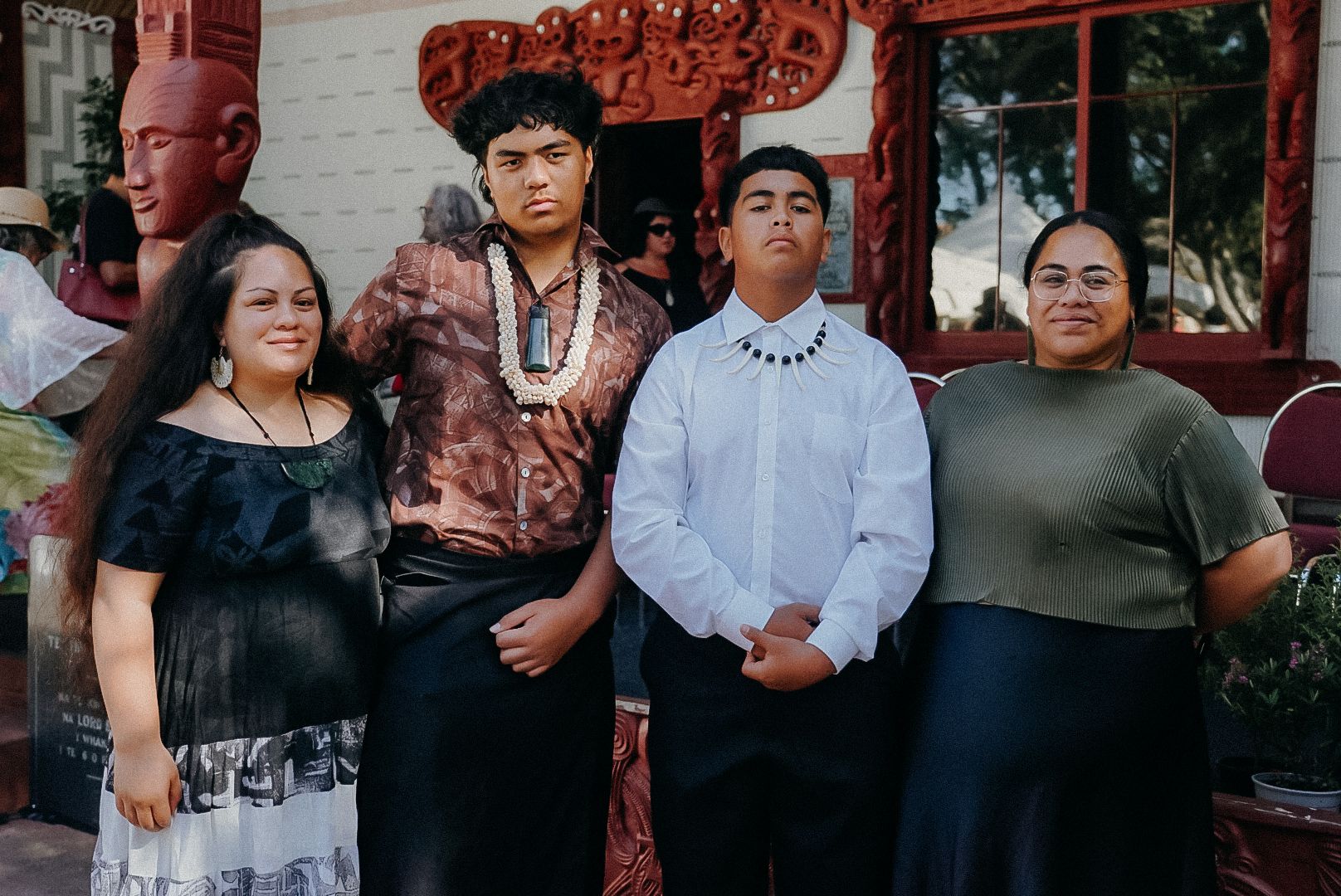
Arumaki and Pomare with their proud māmā. Photo/Joseph Safiti
“I want them to feel confident, I want them to feel good, and I want them to deliver a very powerful message because they are my symbols of our connection to Māori and Pasifika," he said.
Remana-Rogers was asked by Aupito to speak and although intimidated, he knew he had it.
“It was scary at first until [the time] was getting closer, I felt more confident.”
Cowan advised youth to go back to their roots in hopes of encouraging more confident, connected, and cohesive leaders in the future.
“Just go back to where you’re from honestly, that’s where I got it from. Talk to your grandparents, they know it and talk to your mum and that, my mum knows it.”
Mum’s the word
For both boys, their mothers were their backbones and navigators, from whom so much of their confidence and proficiency in language and culture came.
Cowan said his mother asked if he was willing to step forward as a representative, and he proudly took on the responsibility.
“I went to Kura Kaupapa Māori in Wellington and they were very strict. My mum was pretty strict about it (speaking te reo) and they really just built my reo.”
Remana-Rogers said while he was glad the formalities were done and the stress of speaking had gone, having a strong foundation in te reo Māori helped him feel more grounded.
“My mum started taking me to all of her classes when she was a teacher and I started learning with all of her students.”
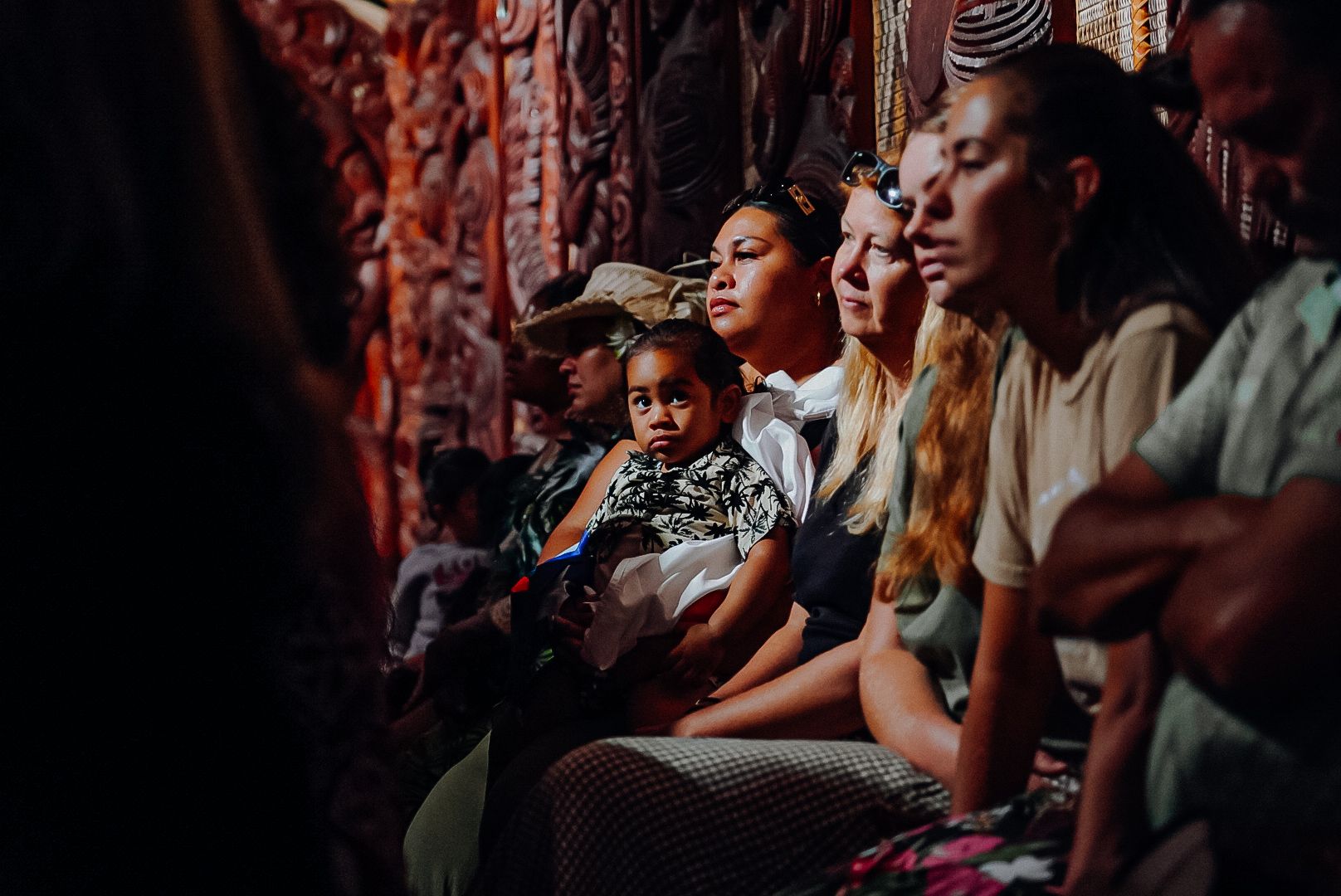
Photo/Joseph Safiti
Taking Pacific representation to Waitangi
Organising the multitudes from across the region has been a challenge for Aupito and the Council of Chiefs.
To reach this stage, much work has gone into the background, including planning and meetings with various Pacific communities, ariki, leaders, elders, and chiefs.
“There’s quite a bit of effort, particularly when we’re getting visitors overseas like the Komiti Nui o te Whare Ariki of the Cook Islands,” Aupito said.
“I’m calling it the inaugural pōwhiri for the Pacific General Assembly, we’ve been organised by the Council of Chiefs and we’re relatively new.
“Our effort here is about learning and connecting better with Māori, learning about the true history of Māori.”
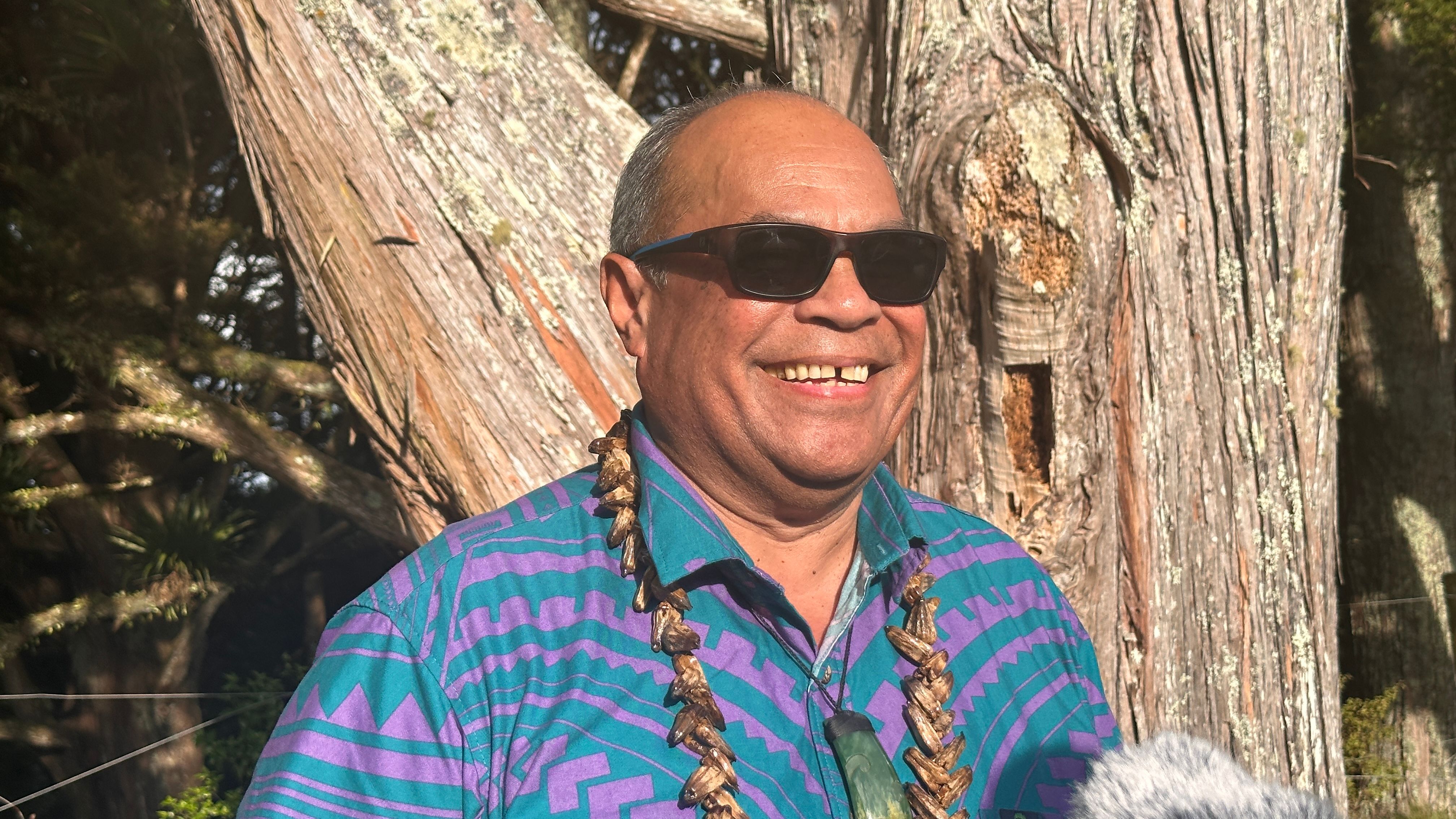
Photo/Atutahi Potaka-Dewes
Aupito said they had been in talks with Ngāpuhi elders about organising this visit.
“I haven’t invited the whole Pacific community and obviously this was the first of many to come."
“But I wanted to set the foundation for how do we work better together with Ngāpuhi and how do we set the scene to work better together with all of Māori?”
Aupito led a Pacific contingent to Waitangi in 2024 at the call of the late Māori King, Tuuheitia Pootatau Te Wherowhero, who passed six months later.
He said the PGA’s presence at Waitangi this year also reaffirmed his unwavering and total commitment to support the Kiingitanga and Te Arikinui Kuini Nga wai hono i te po.